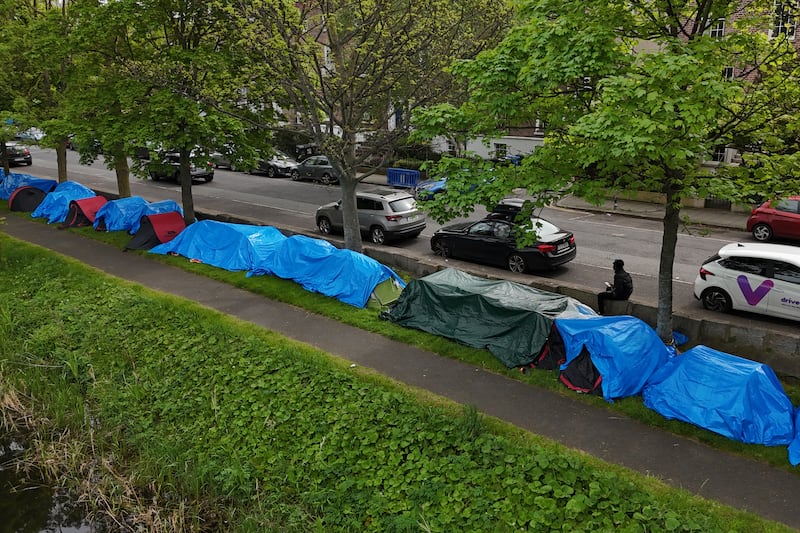Dublin has been left reeling by the frenzy of violence which swept through the city centre, tarnishing its international reputation for céad míle fáilte and bringing shame on Ireland. The episode poses enormous questions for not only politicians and figures such as the under pressure Garda commissioner Drew Harris, but also for the country as a whole.
Read more:
Dublin: Rioting clean-up underway as Leo Varadkar warns damage could cost tens of millions
Around 500 rioters were involved in intense disorder which saw Garda officers injured, vehicles set alight, shops looted, a refugee centre attacked and running battles along streets which ought to be places of safety.

It is utterly reprehensible that one appalling crime – a stabbing attack on children – was exploited by those who were intent only on wreaking destruction. Around 400 gardai eventually restored calm, making more than 30 arrests.
The rioting broke out just hours after a horrific stabbing attack outside a school which left a five-year-old girl in a critical condition. Other children and a carer were also injured in the shocking assault at Parnell Square on Thursday afternoon.

The attacker was disarmed by passers-by. These included a fast-food courier who used his motorcycle helmet to hit the assailant. Caio Benicio, who is from Rio de Janeiro, moved to Ireland a year ago. "There are protests against immigrants and I am an immigrant and I was there, right there to protect Irish people..." he said afterwards.
The selfless courage and bravery of Mr Benicio and the others whose actions undoubtedly prevented more children from being injured is in stark contrast to the thuggery which came later, when garda officers who were protecting the crime scene outside Gaelscoil Choláiste Mhuire were targeted amid rumours about the suspect's nationality.

It takes a particularly warped mindset to use a knife attack on children as an excuse to unleash violence. But it is important that we seek to understand why incidents like this arise.
Far-right radicalisation, fuelled by social media, has been blamed. This is clearly a factor in Ireland, as it is elsewhere across Europe, though a lust for violence and theft does not necessarily need to be wrapped in a political ideology – tellingly, Mr Harris says that "sports-type shops were specifically targeted" for looting.
That such extreme disorder was able to flare up so quickly speaks of a serious malaise in sections of Irish society. Courageous political and civic leadership is urgently needed to find a cure before the disease spreads.







